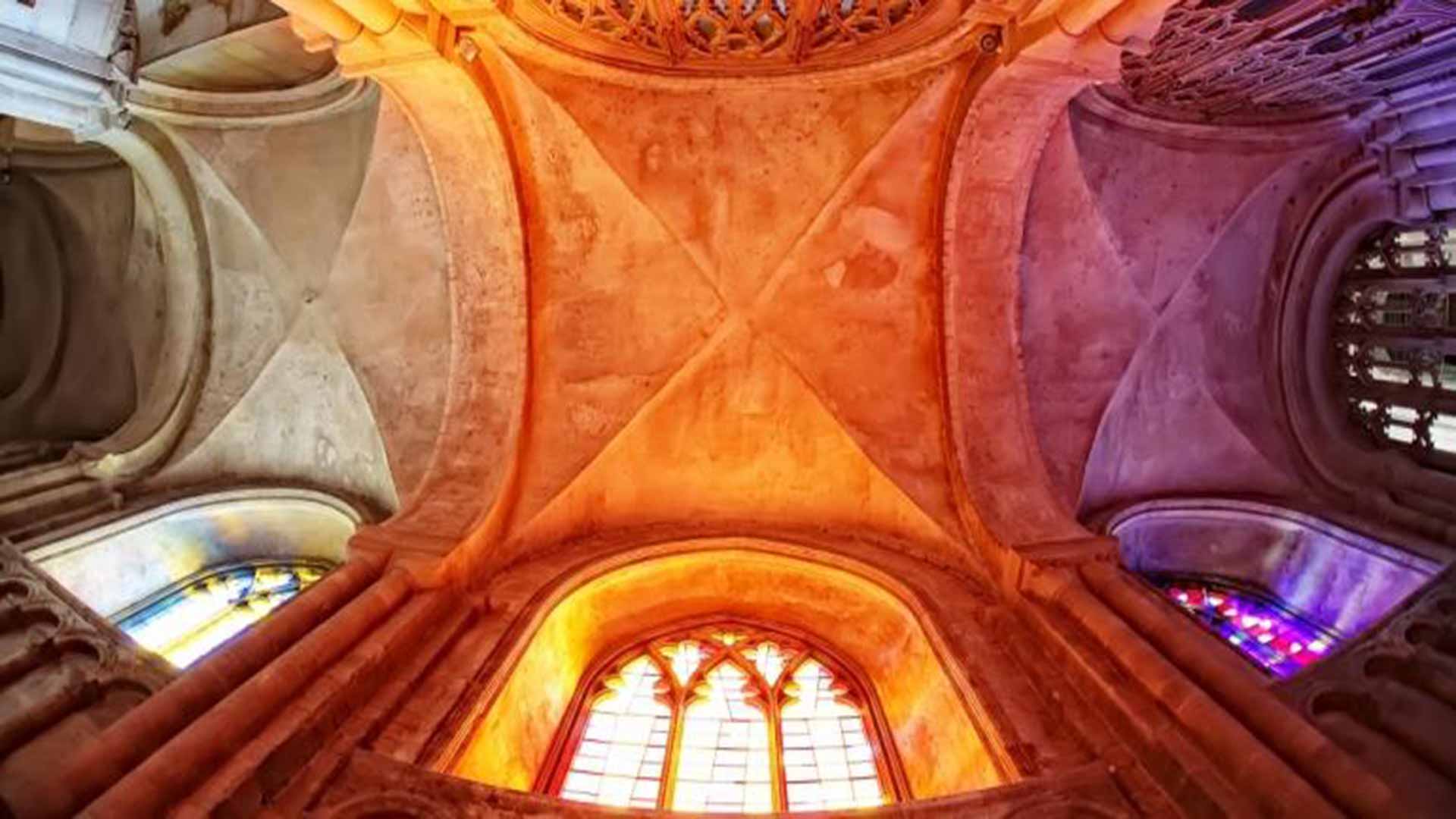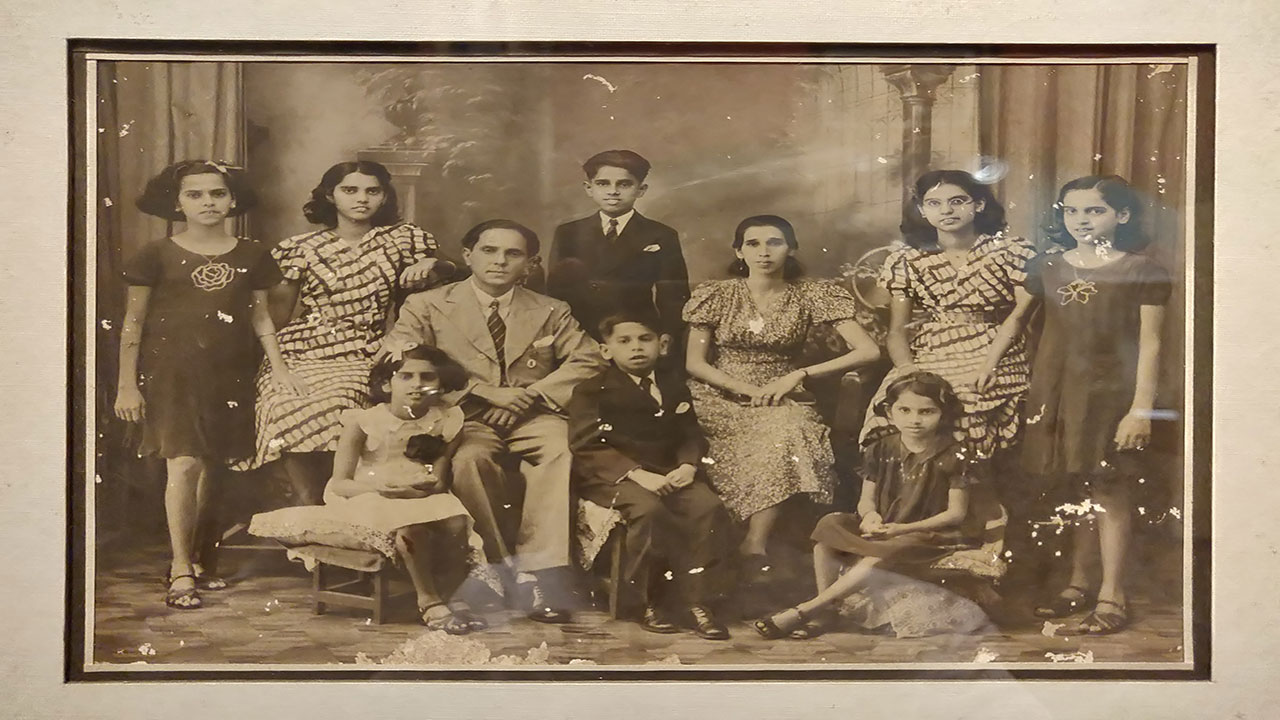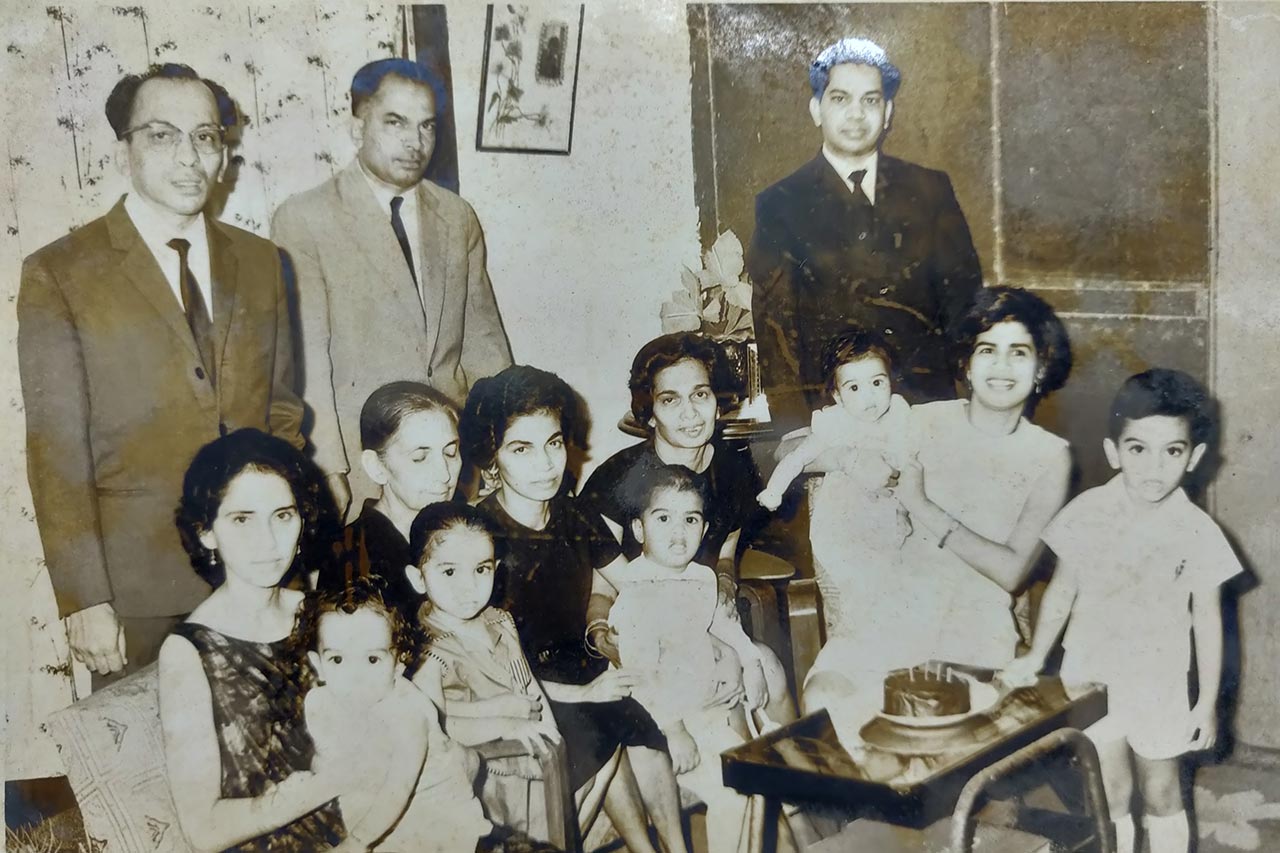Lent, an irresistible balm for the soul
Haven’t we felt listless, not to say ill at ease, about Lent, sometime in our life? As a child, I tagged along with my parents to liturgical services that made little sense. Not surprisingly, on reaching the age of reason, I had to be cajoled into attending them. Then, suddenly, I got a break. I found motets, songs for the season, composed by Goa’s unnamed musicians of old, to be an absolute feast for the ears, alongside similar compositions by Bach, Palestrina and Mozart. I also discovered, quite ironically, that the Via Dolorosa in the balmy evening breeze and to the chirping of birds in the woods of Altinho was not so dolorous after all!
Much as I delighted in those two little secrets, at one point I felt an interior dryness, a sense of futility, as though I were trudging a wasteland. The saving grace came from my grandmother’s exemplary life, which was far better than precept. Likewise, my parents’ quiet commitment to the Faith, amidst their daily toil and moil, provided important insights into the valley of tears we live in. And Scripture wrapped it up so beautifully: “Look at the birds of the air: they neither sow nor reap nor gather into barns, and yet your heavenly Father feeds them. Are you not of more value than they?” (Mt. 6: 26)
Clearly, the rituals that I had cheekily dismissed yesterday changed into victuals for the spirit today. And as another season of Lent comes round, I know just how it will turn out, how they will sustain me…. Beginning Ash Wednesday, I will go to church more often than usual, for Mass and Stations of the Cross. On a hopefully bright and festive Palm Sunday morning, I will feel cheery. Yet, by evening, my mood will change hugely – as it always did when I witnessed the spectacle of the full-size statue of the Suffering Lord emerge from the immaculately white church of the zigzag stairway, to join the faithful clad in dark shades, in a penitential procession through the streets of the capital.
What a poignant start to the Holy Week! It’s the last lap of an all-embracing spiritual journey. You’ll probably catch me shaking off distractions on holy Monday, Tuesday and Wednesday. Through the rest of the week, I will be all eyes and ears to the Mystery of mysteries replayed in the Paschal Triduum, from the moment of that bittersweet Last Supper on Maundy Thursday through excruciating Good Friday and triumphant Easter Sunday. Soon, the week’s darkness will give way to light and its drabness will translate into loud proclamations. The faithful will be beside themselves, singing in an unending refrain: “No one can give to me that peace that my Risen Lord, my Risen King can give.”
It pays to be fools for Christ; Chesterton’s “Donkey” is proof that there will be no regrets. The thought of self-privation, which had bugged me when young, doesn’t assail me. I find it easier now to give up a favourite food or a much-loved pastime. Penance and sacrifice, besides fostering self-discipline and tempering our desires, are game-changers. They help to boost one’s spiritual life and improve our physical health. We are led to find ways and means to step up our knowledge of our faith; perform acts of kindness and mercy, wherever we may be; pray for others, and clean ourselves inside out by means of a holy confession. Before long, we learn to slow down, while the rest of the world is in a rat race, enjoying in a fool’s paradise.
It is reassuring to think of Lent as pilgrimage toward the profound mystery of the passion, death and resurrection of Jesus Christ. Benedict XVI says it is also “a privileged time of interior pilgrimage toward Him who is the fount of mercy. It is a pilgrimage in which He himself accompanies us through the desert of our poverty, sustaining us on our way toward the intense joy of Easter.” How, then, can we be listless or ill at ease at Lent when an irresistible balm for our soul is at hand?
(First published in The Times of India, Panjim, 1 March 2017)
MAMÃ
……………………………………………………………………………………………………………………………………....................................................................................

To us, our mother Judite was a fine human being whose external beauty was a reflection of her inner self. She was a simple soul and she led a simple life, with few demands and even fewer expectations. On the other hand, she gave a lot of herself to others, especially her family. Her diminutive stature was compensated by a large heart, and this is what helped her straddle the responsibilities of a large family and her workplace.
We were a family of seven. But for all practical purposes we were at least ten, for besides our revered Avó Leonor and our fondly remembered Tia Lídia, relatives studying or working in Panjim would stay with us. Mama welcomed them all. Fondness among the extended family was at its best in those almost carefree days. And since the hand that gives, receives – something Mama said again and again – she received immense help from her sisters, particularly after the 1992 malaria bout that shunted five of us to hospital. This was a very stressful period for Mama; she remained ever grateful to Dr Adélia Costa who helped her out of it, as much as she was always grateful to Dr Arcanjo Menezes, who saved her from a tricky medical condition when Sávio was born; as did Dr Roque Ribeiro, on a later occasion.
Mama enjoyed music and the company of people. Blessed with a voice particularly suited to the mandó and religious hymns, she, as a true Curtorcar, took pride in composing mandó for family weddings and anniversaries. Mild-mannered and cordial, she won respect and love, so much so that friends from her office days stayed on with her long into her retirement. She never coveted wealth, power or influence; she was happy with “o pão nosso de cada dia” (our daily bread) – another of her favourite sayings; she was deeply thankful for whatever she had received from the Good Lord, and this kept her cheerful at all times.
A picture of our beloved Mama is not complete without a reference to our dearest Papa. The union of the two through the intercession of St Judas Thaddeus remained blessed, thanks to their devotion to each other and above all to God, to Jesus and His Blessed Mother. The daily Rosary, the Bible, and the Sunday Mass were our staple fare. For our parents, it was also The Memorare and, of late, the Chaplet of Divine Mercy, which they would recite without fail at 3 o’clock: a tradition that Mama kept up till her last days.
Our parents taught us more by example than by precept what it meant to remain united as a family. And a real eye-opener it was when Papa first told us the touching story ‘União faz força’ and Mama chipped in to say that ‘Unity is Strength’ had indeed been the theme of her first lesson as a school teacher. Ilídio fondly recalls the time we spent together as a family, sharing experiences: ‘not a waste of time but an investment’.
You can imagine how difficult it must have been for a mother of five to take care of the household. But neither lack of know-how nor finance was ever a barrier, because Mama did everything with love and out of love. Innovative and creative that she was, she often improvised dishes, cleverly giving them attractive names that magically enhanced the taste. Of gentle ways, her tender hand on our weary foreheads was better than cold water compresses. Her concern for her sons, daughters-in-law and grandchildren knew no bounds. She would not fall asleep until everyone was home. We faulted her for that, but she just couldn’t help it.
Mama was practical minded but her over-concern for us once led her to suggest that we build a big house where all of us siblings and our families would stay together. On another occasion, so anxious was she, not knowing which part of Africa Orlando was stuck in, that, on the telephone, she misheard ‘I am in Johannesburg’ as ‘I am a joyless bird’. She bid him to return quickly, and return he did. What’s more, on his arrival our Benjamin was rushed to the hospital with a highly inflamed appendix…
That was amor de mãe – mother’s love defined. She and I would very often be at our phones at the same time, trying to get across to each other. ‘Telepatia’, she would say... Similarly, her trips to Europe were rather an occasion to be with Ivo and his family, all of whose company she missed.
While she was blessed with talent for music, drawing and craft, she appreciated these better in her grandchildren. They meant the world to her as did her daughters-in-law whom she saw as extensions of herself in what concerned taking care of her five sons! And her daughters-in-law responded with deep love and admiration and indeed gave their best when it came to her last six months of illness. They were five pillars of support to Mama’s five sons.
……………………………………………………………………………………………………………………………………....................................................................................
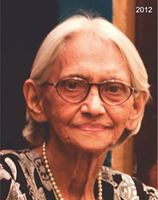 Mama and all of us went through some of the most difficult moments of our life: five and a half months Mama suffered to make us used to the idea that she was going to be no more; and in the process emptied herself completely, to the last drop of her blood, in a spirit of total sacrifice. For the family it was a necessary purgatory, which led us to pray harder than usual and to show our mother that we loved her. For Mama it was, hopefully, her Purgatory on earth, so now we have the moral certainty that she already possesses the Beatific Vision.
Mama and all of us went through some of the most difficult moments of our life: five and a half months Mama suffered to make us used to the idea that she was going to be no more; and in the process emptied herself completely, to the last drop of her blood, in a spirit of total sacrifice. For the family it was a necessary purgatory, which led us to pray harder than usual and to show our mother that we loved her. For Mama it was, hopefully, her Purgatory on earth, so now we have the moral certainty that she already possesses the Beatific Vision.
(St Inez Church, 13 Feb 2016)
Surreal Tête-à-Tête
It was one of those nights when at first it looks as if nothing out of the ordinary is going to happen; but then, when one is already dead to the world – and can’t possibly expect anything to happen – almost everything happens.
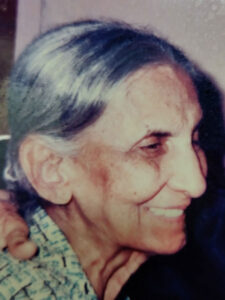
Yes, in a dream anything can happen, triggered by a poignant scene witnessed earlier in the day, a gripping tale told or heard, or by interface of nostalgia and anticipation. For, as Eliot says in Four Quartets, “Time present and time past Are both perhaps present in time future, And time future contained in time past.”
The tête-à-tête I had on the second night of the New Year gave me the sense that “all time is eternally present, All time is unredeemable.” Time past and time present did get inextricably mixed when I was greeted by my grandmother Leonor (1900-1992), of happy and adorable memory.
While in real life it was grandma who waited for reports from the world of light, now it was my turn to seek news from beyond the tomb… about the Light of the World.
I was helping out at the funeral of a close relative when suddenly my Avó took centre stage. This was uncharacteristic of her, as like Mary in the Magnificat she always kept a low profile. In a coffin she lay – moved, quite oddly, to a busy commercial establishment at the Panjim church square, which was once called Largo das Flores, the Flower Square. But there were no flowers anywhere, no candles, no voices of mourning – only the din of the madding crowd and the motors outside.
It wasn’t an upsetting sight to behold, because the old lady herself was relaxed, seemingly waiting for a visitor to arrive. She had closed her eyes: I reckon she found no sense in doing otherwise after glaucoma had struck her blind in the last four years of her life.
My Brazilian friend Aluísio used to say, “When God sends you an illness, be sure He will also make the bed.” So it was for Avó, who had been blessed with an extra sense. She could literally feel the presence of a person in the room, although this time around she had mistaken me for Fernando, her firstborn and my father standing by her cradle. The cause of the confusion? Maybe my voice which sixteen years down the line has, so they say, grown closer to my father’s. But soon she said, radiantly, “Ah! It’s you, Oscar!”
The exclamation caused a gush of memories, like her grandchildren whom she always welcomed home – me in particular, every single day, after that gruelling journey to Quepem and back.
“Absolutely delighted to see you, Avó,” said I, feeling that sixteen years had telescoped into a day. While in real life it was grandma who waited for reports from the world of light, now it was my turn to seek news from beyond the tomb… about the Light of the World. I just could not wait and so, like a stuttering rifle’s rapid rattle, I fired a few questions:
“Avó, does God exist? Have you met Him? Spoken to Him? Where is He?”
That is when I noticed her standing upright. There was behind her a glass door as clear as crystal and sporting a red-and-yellow horizontal band; which opened onto the footpath. In stoic silence, with her eyes still shut and her smile withdrawn, she faced my inquiry. I thought briefly that my references to the divine had been brash, and was going to apologise; but the very next instant, perhaps misreading her stillness as endorsement of my momentary unbelief, I prodded her with more questions:
“Where is He? Up there, or down here? Were you there?”
An inquisitorial Pilate got no answers from Jesus, did he? The same here; and, in addition, I was woken up. In vain did I try to recover that magical ambience of suspended consciousness, by burying my face deep in my pillow! There was also that enigmatic lady in a green sari, who was babbling a few nothings in her bid to liaise between my grandmother and me; but again, to no avail.
Fled was that vision, the saving grace being the sound of music about my ears: later I identified it as “Jezu, Ballka Pritichea” (‘Our Dear Child Jesus’) – a solemn polyphonic composition by our very own Fr. Vasco do Rego. (On waking up I was divided between that hymn and Fr Peter Cardozo's vivacious "Zoi Jezu, Amcheá Raza", meaning 'Hail, O Christ, Our King!'')
By now the sparrows outside had begun their chirpy melody, while the inside of me thumped like a drum. Hailing that hymn as a sweet reply to my impatient musings, I realised that it was nearing the Angelus, a moment very close to Avó’s heart. I was gradually coming to terms with my intimate reality, confident that it had disturbed no one, but soon thereafter, pretty shaken up was I when my firstborn, Fernando Jr., waking up as usual at seven o’clock, asked quite matter-of-factly, “Papa, whose funeral did you attend yesterday?”
(Herald, 9 February 2009)
